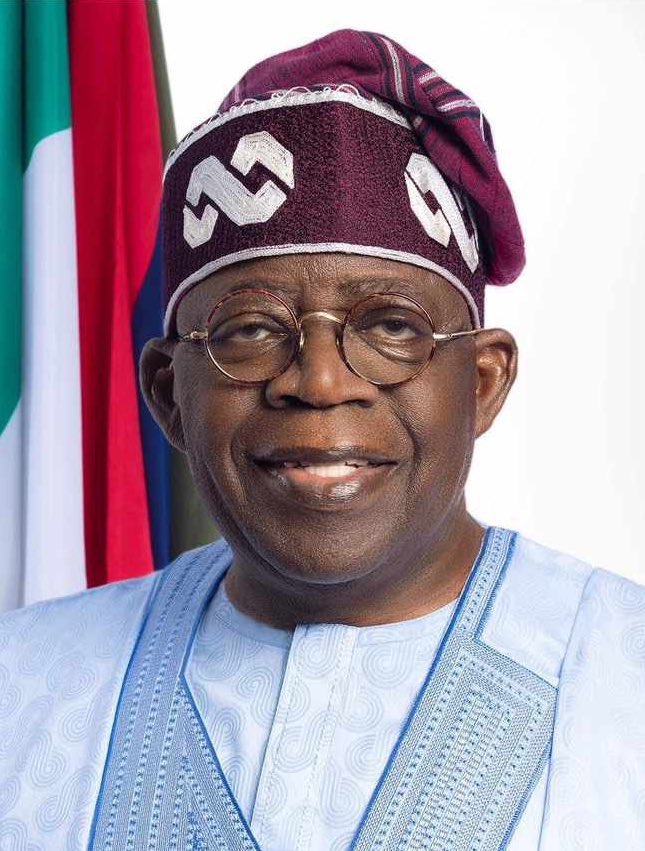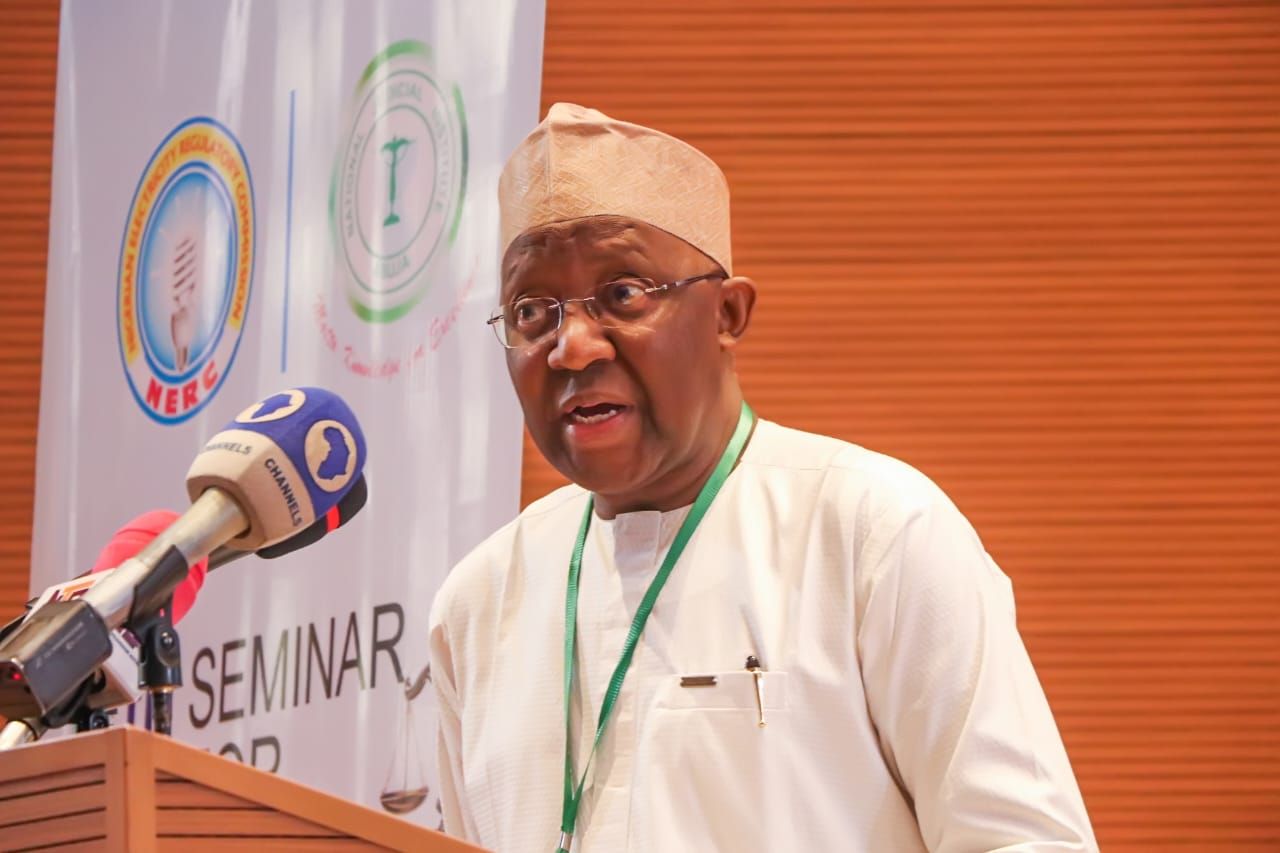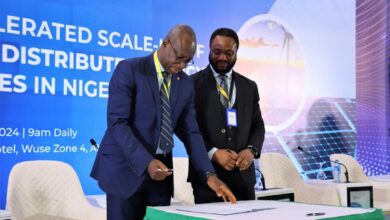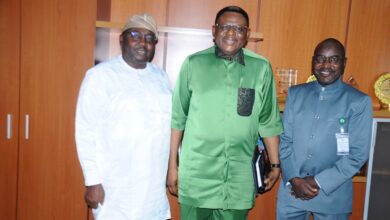Power Privatisation Objectives Not Met, 90m Nigerians Still In Darkness -Tinubu

…Calls For Clear Roadmap
President Bola Tinubu has said, 10 years on, the objectives of the nation’s power privatisation have not been met as about 90 million Nigerians are still wallowing in darkness due to a lack of access to grid electricity.
Tinubu spoke at the Nigeria Electricity Supply Industry (NESI) Market Participants and Stakeholder Roundtable (NMPSR) held on Monday in Abuja.
He noted that the key objectives of the privatization effort were to improve the efficiency of the power sector, unlock private sector investments, and unleash the potential of the nation through an energized economy.
“I believe it is fair to say that the objectives of sector privatization have by and large, not been met. Over 90 million Nigerians lack access to electricity.
“The national grid only serves about 15% of the country’s demand. This has left households and factories to rely on expensive self-generation, which supplies a staggering 40% of the country’s demand.
“What is worse, is that the total amount of electricity that can be wheeled through the national grid has remained relatively flat in the last 10 years.
“The grid capacity has increased from just over 3000MW to typically just over 4,000MW today. Versus a 40,000MW target by 2020 that the Federal Government had set for the pre-privatization”, he said.
Represented by the Special Adviser on Energy and Infrastructure, Office of the Vice President, Sodiq Wanka, the President said, “the reasons for the underperformance of the sector in the last decade are well known. There are deep commercial, governance and operational issues that have beleaguered the sector”.
He said, “as of Q2 2023, for every kWh of electricity sent to the grid, only 60% of it is paid for. But as we know, even the tariff paid for that unit of electricity is far from being cost-reflective, especially in light of the recent devaluation of the Naira.
“The sector has suffered from chronic underinvestment, especially in transmission and distribution. Many of the successor utilities of the PHCN have failed to meet their performance improvement targets due to technical and financial capacity issues.
“We are in a vicious cycle of under-performance and under-investment, and everyone has a different view of which value chain player should be blamed for continued sector malaise”, Tinubu said.
Going forward, he said, his government would intensify efforts to address commercial issues and improve the investment attractiveness of the sector.
He disclosed that “only around 45% of NESI customers are metered today, with wide variations across DISCOS. The scale of investment needed to meter current and new customers and replace obsolete meters is not trivial.
“The Government is committed to supporting the metering drive through the World Bank DISREP programme which should add at least 1.25 million meters, while activating the Meter Acquisition Fund to procure another 4 million meters. But we must also realize that long-term sustainable metering should be within the remit of DISCOS and their partners.
“We need to have a clear plan to rebase tariffs, so we recognize the real costs and loss levels of the entire value chain, and we allow for adequate cost recovery for investments. We need to be clear on what shortfalls are and how we will finance them. And there must be a clear path to extinguishing historic sector debts to various value chain stakeholders. A reconciliation exercise in this regard is already underway”, he said.
While calling for a clear roadmap for the sector, Tinubu said, “we need to quickly develop and execute a clear roadmap for serving profitable pools of customers. This includes industrial and agricultural clusters and strengthened participation in the West African Power Pool in the immediate term.
“And we must deepen engagement with the Nigerian public on power – including communicating sector strategy and key milestones and curbing energy theft through community engagement and penalties”, he said.
Tinubu said, “80% of grid generation today is from gas. We intend to convene all relevant stakeholders to develop a gas policy for the power sector delineating where the power sector will get gas from and how it will pay for it. We cannot build a sector on best endeavour arrangements.
“We need to have a single source of truth in terms of data in the sector, a national electrification plan that highlights the energy gaps, supported by clear investment plans on how to close the gaps.
“We need to institute a Presidential Taskforce that will monitor and unblock the progress of deployment of key projects in the sector. This includes projects that will help un-constrain the grid and deliver the full available generation capacity to our homes and factories.
“We have to accelerate the pace of deployment of renewables and solar in places where it makes sense. There is a real opportunity to accelerate the deployment of inter-connected and isolated mini-grids to deliver power close to the point of use. And will support the rollout of initiatives aimed at diesel displacement to reduce the carbon intensity of embedded power plants, while supporting innovative financing schemes for solar solutions in the home.
In terms of sector governance, he said,
“we have to create an environment where the worst performers do not continue to drag the sector down. All licensees must not only have the technical capacity to deliver on their license but must also have the financial muscle to invest and grow their operations”.
He said, “preliminary analysis shows that DISCOS today are under-capitalized to the tune of close to NGN 2 trillion. We must facilitate a reorganization and a recapitalization process that brings in new partners and new capital to jumpstart performance in this critical section of the value chain”.
In light of the Electricity Act 2023 signed by him, he said, there was a need to clarify the role of states in a new national electricity framework.
To that extent, he said, the National Electricity Regulatory Commission has begun stakeholder engagement to define how to operationalize the key tenet of the Electricity Act.
“I believe this to be one of the most important assignments in the sector and we must ensure that the output delivered through the national regulator-led discussions is a true consensus on how the sector should operate going forward”, he said.
According to him, “the Electricity Act has also given the national Regulator the Power to advise on the transition of the market away from a single bulk trader and the unbundling and concessioning of the country’s transmission network.
“We need to quickly build a clear transition plan with timelines and milestones on these two important issues”, he said.






